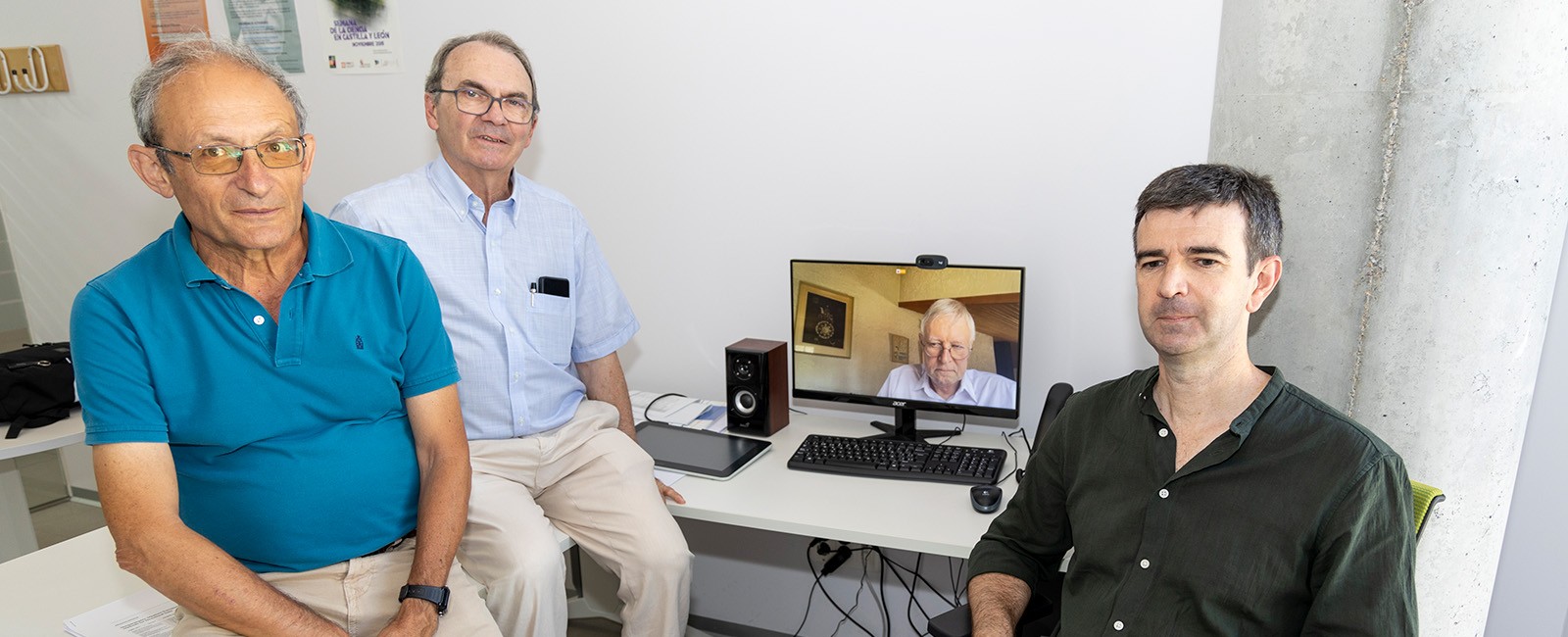
Eustasio del Barrio Tellado, Marc Hallin, Juan Antonio Cuesta-Albertos and Carlos Matrán Bea
SPANISH SOCIETY OF STATISTICS AND OPERATIONS RESEARCH (SEIO)-BBVA FOUNDATION AWARDS
Best Methodological Contribution in Statistics
2023
For their paper “Distribution and quantile functions, ranks, and signs in dimension d: A measure transportation approach,” published in Annals of Statistics and described by the committee as “a breakthrough not only in the theoretical statistics field, but also in all fields of applied statistics.”
CONTRIBUTION
If we want to compare, let’s say, two sets of peas according to their size, there is a method used for more than a century that is as simple as it is effective. Just order each set from smallest to largest and compare the first elements of each set, then the second, and so on. However, the method only works when comparing magnitudes one at a time.
For Eustasio del Barrio Tellado, Professor of Statistics and Operations Research and Director of the Mathematics Research Institute at the University of Valladolid, this is “a major constraint,” since “nowadays, in practically any study, you can find yourself measuring millions of characteristics, which call for a more global comparison.”
Del Barrio, together with Marc Hallin, Emeritus Professor of Mathematics at the Université Libre de Bruxelles, Belgium; Juan Antonio Cuesta-Albertos, Professor of Statistics and Operations Research at the University of Cantabria; and Carlos Matrán, Professor of Statistics and Operations Research at the University of Valladolid, have designed a new methodology that supports data comparison regardless of the number of magnitudes. To do so, they took the classic optimal transportation problem and applied it to statistics. Their paper “Distribution and quantile functions, ranks, and signs in dimension d: A measure transportation approach,” was published in Annals of Statistics.
The awardee proposal has applications “in potentially every field,” Del Barrio affirms: from eliminating biases from the data fed into AI algorithms to examining the complex relations between oceanographic parameters like temperature, salinity and depth. “When we study each magnitude separately, these relationships are hidden, so we would be trying to explain reality by reference to a model that is oversimplistic.”
In the biomedical domain, his team has plans to improve diagnostic efficiency through a more refined analysis of tissue samples. Their methodology, says Del Barrio, “would help integrate far larger databases than those currently existing,” subjecting samples to an initial, automatic comparison with the parameters of normality before the diagnosis is confirmed by a specialist.
The researcher believes everyone should have a basic understanding of statistics, “so they cannot be easily manipulated” in today’s data-driven world, something that would also help bring about “a freer, better informed citizenry.”
